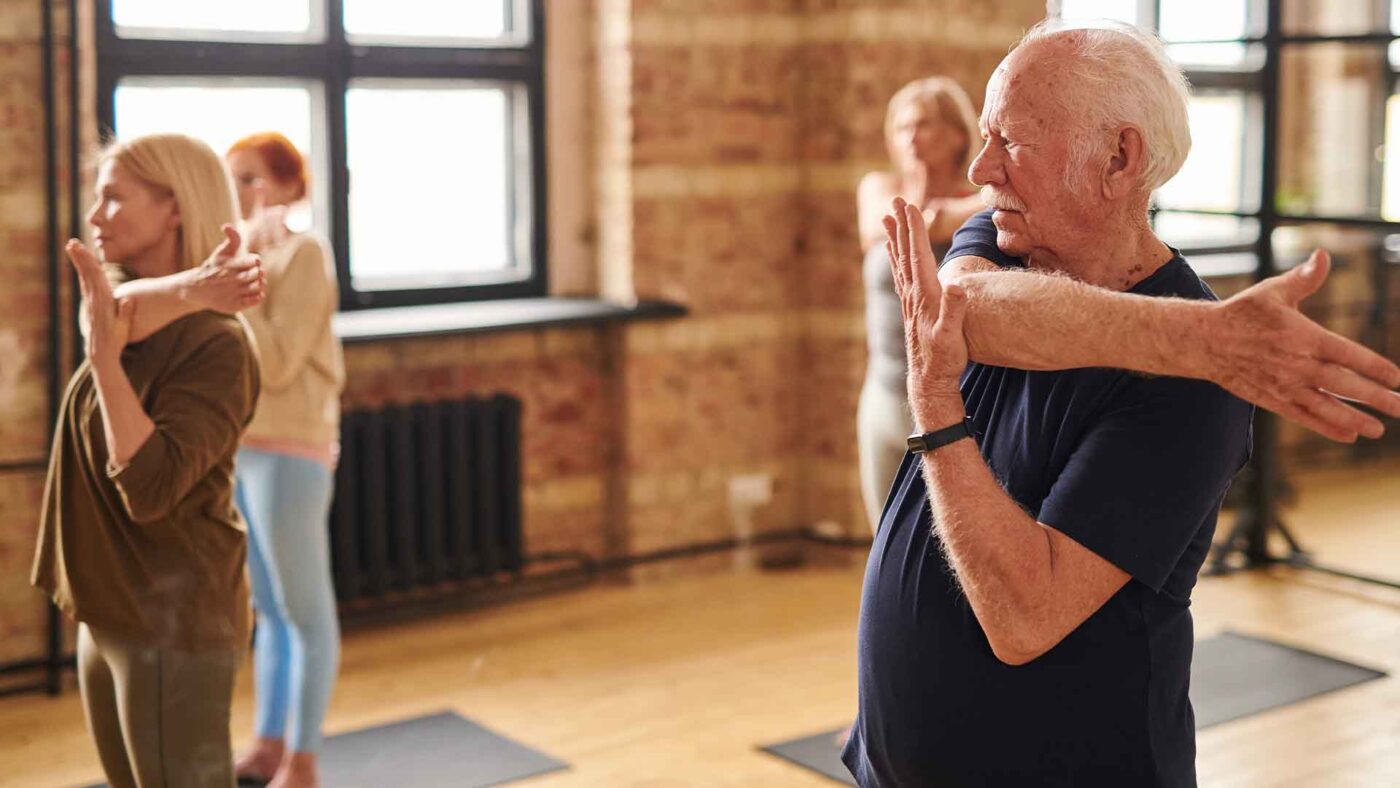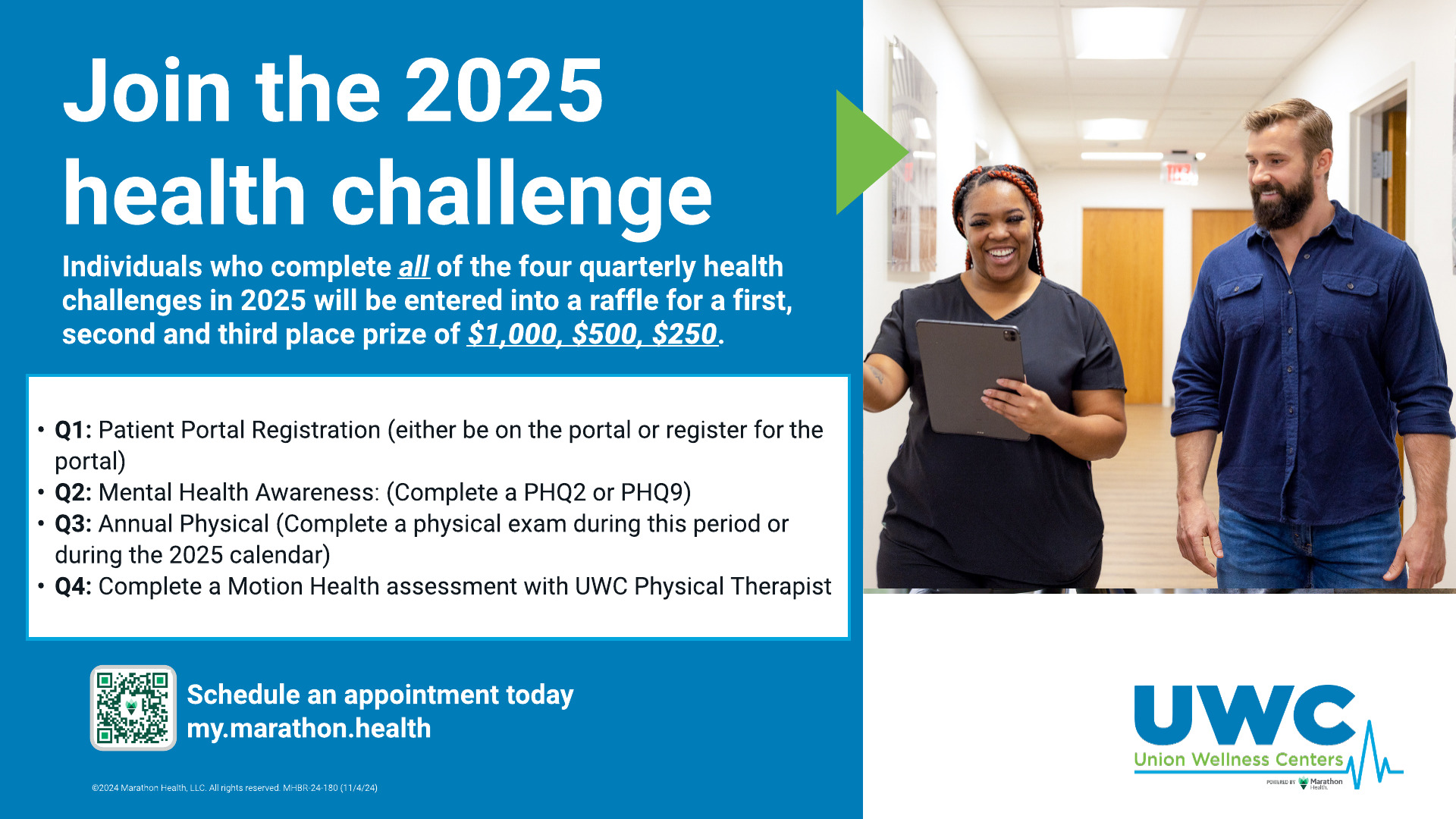Make movement fun and convenient
Tips for reaching your physical activity goals
When we were kids, we were physically active through play. Exercising wasn’t even a thought. Now that we are adults, it can be difficult to fit the recommended amount of physical activity into our busy schedules. Experts recommend at least 150 minutes of physical activity per week.
You can reach this goal by breaking it up into smaller amounts each day. If you dread the idea of breaking a sweat, it might be time to think about fun ways you can get active, just like you’re a kid again.
Here are a few fun ways you can make movement fun:
- Give yourself a gold star with non-food-related rewards like a day at the park, lake, or zoo.
- Sign up for an exercise class – invite your friends.
- Find an online exercise video.
- Go for a swim or bike ride.
- Walk around the neighborhood.
- Explore a nature trail.
- Play a sport with friends or family.
- Try water aerobics.
- Crank up your favorite tunes and dance for 30 minutes.
If you can’t find time to try the activities above, you can always consider incorporating more movement into the common daily activities below:
- Walk whenever you can instead of driving.
- Take the stairs instead of the escalator or elevator.
- Do sit-ups in front of the TV.
- Dance while you sweep or vacuum.
- Do a squat every time you fold a clothing item.
The importance of stretching and mobility
Physical activity plays an important role in living a healthy lifestyle, but stretching exercises should not take a back seat to your workout routine. Consider taking time to focus on your mobility so you can stay active and pain free as you work toward your physical activity goals. It is important to pay attention to tight joints, tendons, and muscles as you explore new ways to become more active.
When beginning a new exercise regime, mobility is often overlooked by strength and conditioning routines. Poor mobility can lead to aches, pains, and even injury that can derail a healthy lifestyle and make it hard to meet your goals. One thing you can do to help yourself feel good and stay active is to practice daily stretches. Stretching can help improve flexibility, and, as a result, the range of motion of your joints.
Better flexibility may:
- Improve your physical performance
- Decrease your risk of injuries
- Help your joints move through their full range of motion
- Increase muscle blood flow
- Enable your muscles to work more effectively
- Improve your ability to do daily activities
Before you plunge into stretching, make sure you do it safely and effectively. It is recommended to stretch each muscle group for at least 60 seconds. You can stretch in sets of 10 to 30 seconds at a time, or all at once. While stretching, a mild discomfort may occur. Sharp or intense pain should be avoided. The idea is to let the muscle relax into the stretch. Forcing a position can cause the muscle to tighten up or cause injury.
Don’t forget that stretching is not considered a warmup. You may hurt yourself if you stretch cold muscles. Before stretching, warm up with light walking or jogging low intensity for about 10 minutes. You can also stretch after your workout when your muscles are warm. Ask a medical professional about physical activity and stretches that are right for you.
5 tips to keep you motivated for exercise:
- Find ways to fit exercise into your day. You are more likely to get moving if exercise is a convenient part of your day.
- Make it fun. Do activities you enjoy or try something new.
- Make it social. Invite a friend to keep you going and provide emotional support.
- If there’s a break in your routine, get back on track. You don’t have to give up. Slowly build back up your previous level of activity.
- Keep track of your progress. Make an exercise plan, and don’t forget to reward yourself when you reach your goals.

